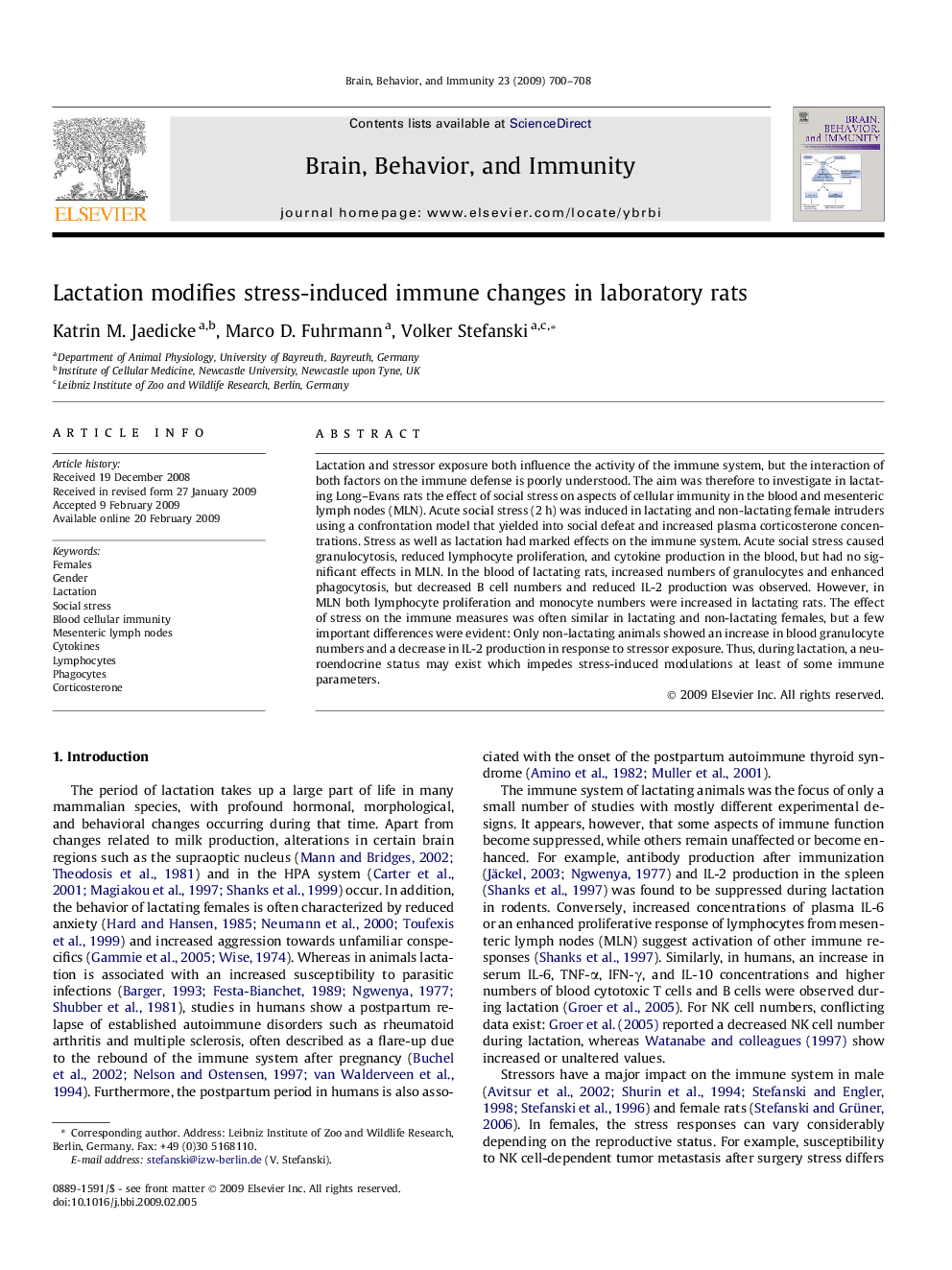| Article ID | Journal | Published Year | Pages | File Type |
|---|---|---|---|---|
| 923004 | Brain, Behavior, and Immunity | 2009 | 9 Pages |
Lactation and stressor exposure both influence the activity of the immune system, but the interaction of both factors on the immune defense is poorly understood. The aim was therefore to investigate in lactating Long–Evans rats the effect of social stress on aspects of cellular immunity in the blood and mesenteric lymph nodes (MLN). Acute social stress (2 h) was induced in lactating and non-lactating female intruders using a confrontation model that yielded into social defeat and increased plasma corticosterone concentrations. Stress as well as lactation had marked effects on the immune system. Acute social stress caused granulocytosis, reduced lymphocyte proliferation, and cytokine production in the blood, but had no significant effects in MLN. In the blood of lactating rats, increased numbers of granulocytes and enhanced phagocytosis, but decreased B cell numbers and reduced IL-2 production was observed. However, in MLN both lymphocyte proliferation and monocyte numbers were increased in lactating rats. The effect of stress on the immune measures was often similar in lactating and non-lactating females, but a few important differences were evident: Only non-lactating animals showed an increase in blood granulocyte numbers and a decrease in IL-2 production in response to stressor exposure. Thus, during lactation, a neuroendocrine status may exist which impedes stress-induced modulations at least of some immune parameters.
